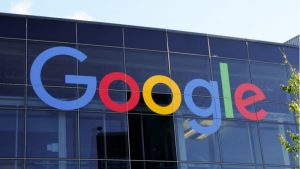The mayor of Chattanooga, Tenn., pushed back today on the notion that 5G wireless services hold the key for rolling out big “smart-cities” technology improvements, and instead said his city’s gigabit fiber network can handle the job just fine.
In the aftermath of Hurricane Harvey, the city of Houston made it a priority to embrace technology, taking steps to use cloud, share data, and improve resiliency.
Much like how Akron’s most famous native, LeBron James, changes how opposing teams defend him—the City of Akron is hoping to adjust its own defensive strategy by protecting its computer systems with cloud-based technology.
Top officials from communications industry trade groups told members of the Senate Commerce, Science, and Transportation Committee today what few, if any, in the hearing room would disagree with: the United States needs to win the global race to leadership in 5G communications services and technologies.
Sens. Amy Klobuchar, D-Minn., and Dan Sullivan, R-Ark., reintroduced legislation on Tuesday that would “establish an international information sharing program on election administration and security at the State Department.” The Global Electoral Exchange Act, which had been introduced in the last Congress, would enable the United States to work with its international allies to strengthen election security by sharing best practices on audits, disinformation campaigns, and voter database protections–among other pertinent issues.
In a cease and desist letter sent Saturday, the New York City Police Department (NYPD) demanded that Google stop sharing the location of Driving While Impaired (DWI) checkpoints on its navigation app, Waze. In the letter, signed by department’s acting deputy commissioner for legal matters, Ann P. Prunty, the NYPD explained that under the city’s Vision Zero initiative its trying to eliminate all traffic fatalities and “paramount to the success of this initiative” is the police enforcing all DWI laws.
Participants described how their participation in Jack Voltaic 2.0, a joint exercise between the City of Houston and the Army Cyber Institute held in July 2018, opened their eyes to the threats of a combined cyber and physical attack on critical infrastructure.
The Tucson, Ariz., Fire Department is using the assistance of cloud technology to study the risks of certain cancers that firefighters can develop.












